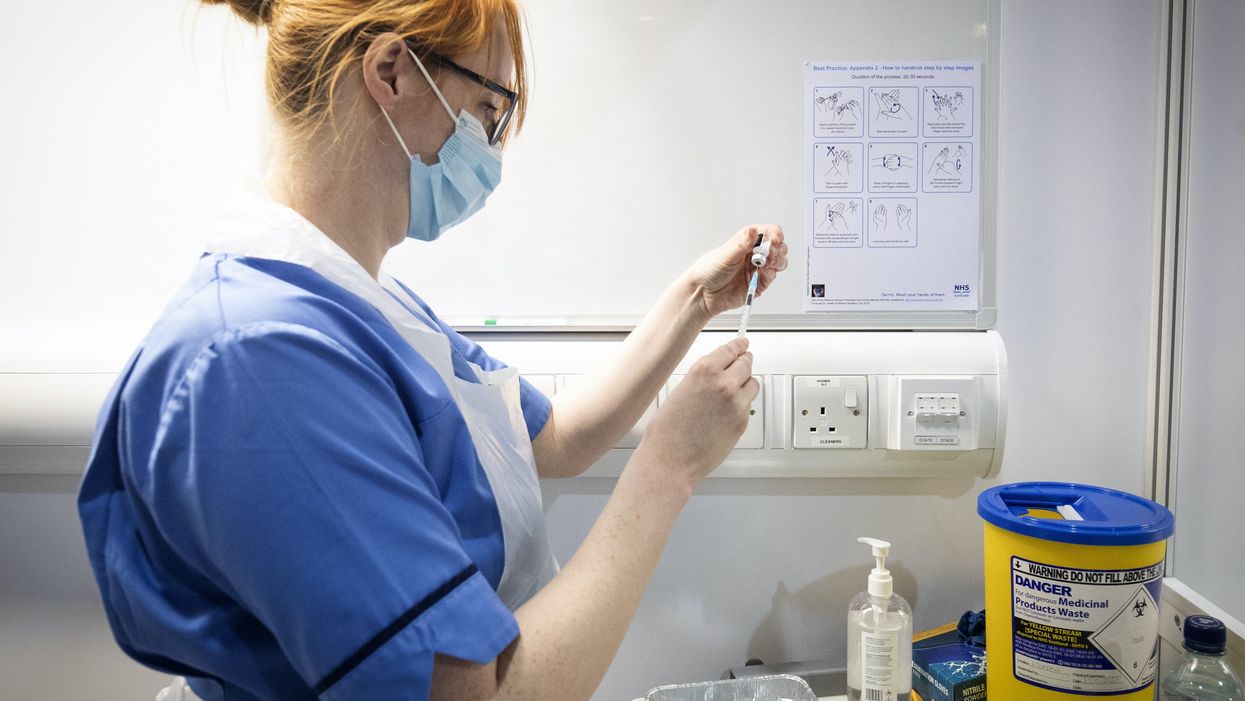Kate Plummer
Apr 15, 2021

Nurse prepares Covid vaccine at NHS hospital in Glasgow
PA
The UK government has met their latest coronavirus vaccine targets.
All over-50s and those in high-risk groups were meant to have been offered a first dose of the vaccine by 15 April.
In fact, the target was met on 13 April, and the government has said it is on track to offer a first dose to all adults by the end of July.
But how does this rollout compare to that of other countries?
From the looks of this graph, countries like the USA, China and India are sailing ahead in terms of the impressive number of vaccines they have administered, with these countries jabbing millions of people.
However, a different story is told when factoring in the share of different country’s population that have been vaccinated.
Countries like Gibraltar, Israel and the Falkland Islands have vaccinated the majority of their populations while countries with large numbers of vaccines like India have vaccinated just over 1% of theirs.
Meanwhile, when comparing the UK’s rollout to the rest of Europe, the UK is leading in terms of both the number of vaccines administered and the proportion of the population who have received one, with Germany and Turkey taking second and third place.
In total, over 825,000,000 doses of coronavirus vaccines have been administered around the world in 189 locations. Seven coronavirus vaccines are now in use in at least one country.
The rollout has not come without controversy. The World Health Organisation has expressed concerns about poorer countries being left behind, as vaccine rollouts in advanced economies are largely outpacing those in emerging and developing economies.
Meanwhile, concerns have been raised about the AstraZeneca vaccine as well as the Johnson and Johnson jab, because of extremely rare blood clots that can occur as side effects. The latter has been paused in the USA, while the former will now not be used for those under the age of 30 in the UK, if other vaccines are available.
Another concern about the vaccine rollout has been about staying ahead of the virus, and inoculating populations before the virus has a chance to mutate and become resistant to vaccinations. Evidence so far has led virologists to be confident that Pfizer and Moderna offer some protection from the South African variant, for instance, but AstraZeneca is only about 10% effective.
Yesterday, a trial to determine whether different vaccines can be administered for first and second does was expanded. If doing so is found to be safe and effective, this will speed up the rate of vaccinations in the UK.
With this being case, a steady vaccinate programme remains vital.
This, combined with the success of lockdown measures, could be the world’s way out of the pandemic.
Top 100
The Conversation (0)













